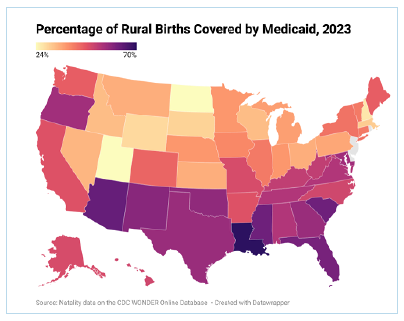Medicaid Covers 41.5% of US Births in 2023, NCHS Data Reveals

A new report from the National Center for Health Statistics (NCHS) indicates that Medicaid has become the principal source of payment for 41.5% of births in the United States in 2023. This data, detailed in "Table 19. Principal source of payment for the delivery, by age and race and Hispanic origin of mother: United States, 2023," highlights a continuing shift in healthcare financing for childbirth. The NCHS, a division of the Centers for Disease Control and Prevention (CDC), routinely collects and publishes vital statistics data.
The 2023 figures show a slight increase in Medicaid's share, up from 41.3% in 2022. Conversely, private insurance, while still covering the largest proportion, saw a marginal decline from 51.2% in 2022 to 51.0% in 2023. The percentage of births categorized as "self-pay," often indicative of uninsured deliveries, also rose from 4.1% to 4.4% over the same period, suggesting growing financial challenges for some families.
Payment methods for delivery vary significantly across racial and ethnic groups. In 2023, Medicaid was the primary payer for 64.5% of births to Black mothers and 58.8% of births to Hispanic mothers. For White mothers, private insurance covered the majority at 65.1%, with Medicaid accounting for 27.6% of deliveries, according to the NCHS findings.
Maternal age also plays a crucial role in the source of payment. Younger mothers, particularly those under 20, relied heavily on Medicaid, which covered 78.5% of their deliveries. In contrast, private insurance coverage increased with maternal age, peaking at 64.9% for mothers aged 35-39, while Medicaid coverage decreased to 28.1% for this older demographic.
These trends underscore persistent disparities in maternal healthcare access and financing. As noted by KFF, Medicaid covers over two-thirds of births to Black or American Indian and Alaska Native women, acting as a critical safety net. The rise in self-pay deliveries also signals potential gaps in health insurance coverage, which can impact access to comprehensive prenatal and postnatal care.